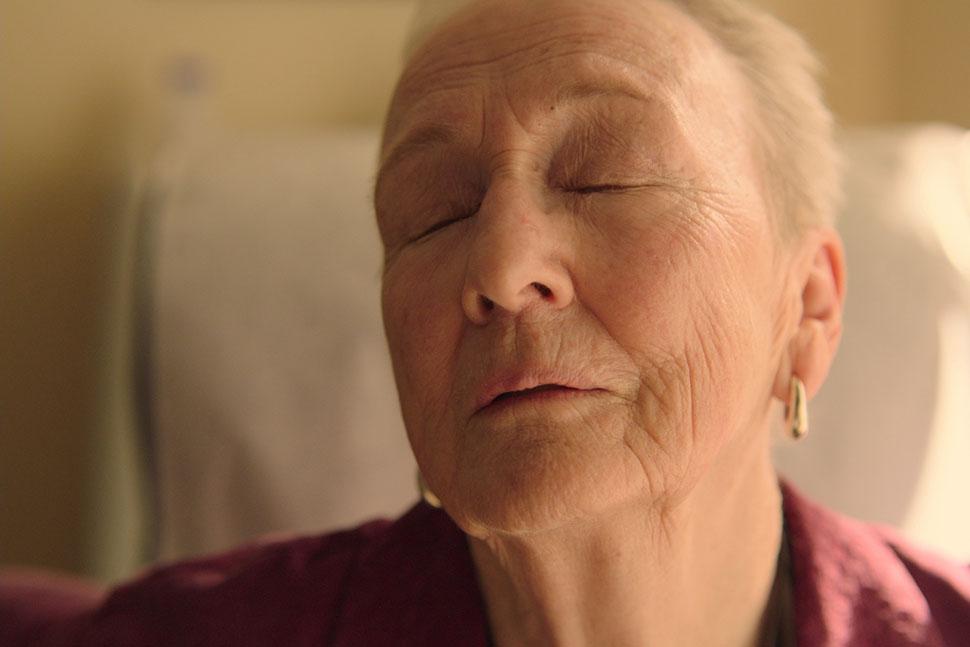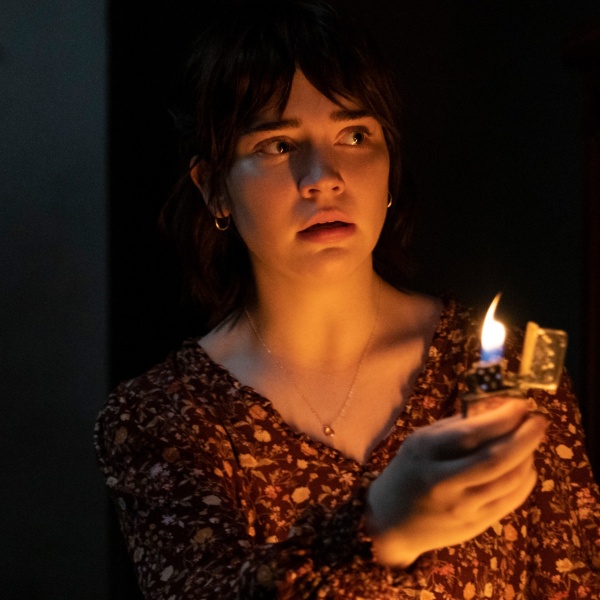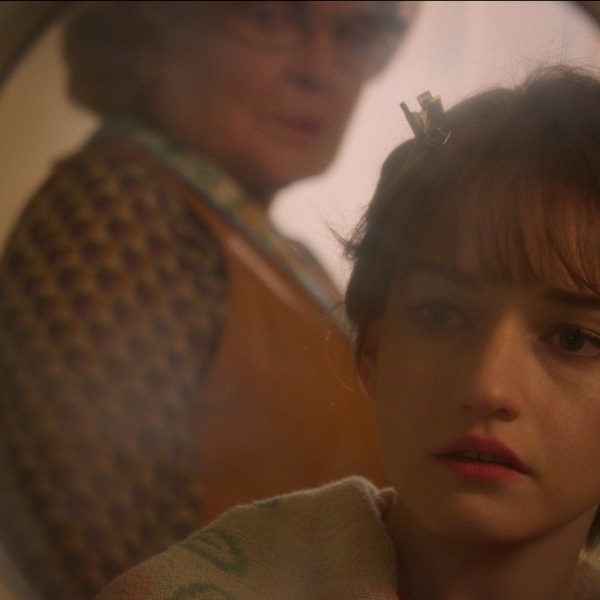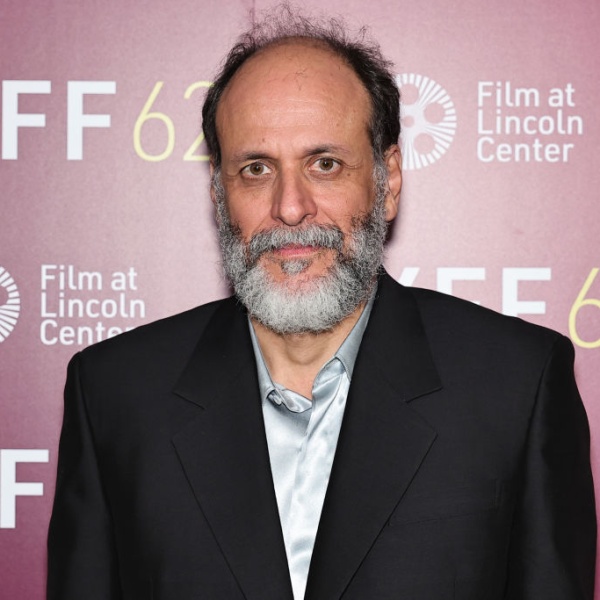Ruth (Tony nominee Kathleen Chalfant) is preparing for a visitor. But she can’t find the outfit she wants to wear, no matter how many times she flips through her closet. And the meal is coming together oddly, with extra ingredients tossed to the side (or, in one evocative case, lined up neatly in the dish dryer). And Ruth, while she knows enough to get dressed and to make one of her signature meals for the event, can’t quite remember who she is hosting. What is his name? Why is he here? Are they on a date?
The man who appears in her cozy home is reserved and nervous (he’s played by H. Jon Benjamin, offering the rare and welcome dramatic turn for the comedian and voice actor). And when Ruth slowly turns their stilted conversation into more flirty directions, he looks as if he’s about to jump out of his skin. And then he gently packs her up, gets her in the car, and drives her to what will later be termed a “geriatric country club.” Ruth may be shocked to her core when kind nurse Vanessa (a luminous Carolyn Michelle) thanks Benjamin’s Steve for bringing his mother — “I don’t have a son?!” — to her new home, but things have snapped into place for us long ago.
In “Familiar Touch,” filmmaker Sarah Friedland’s achingly intimate drama, we follow Ruth as she attempts to acclimate to her new life (and where it will eventually take her) over the course of her early days in the home and, specifically, in its memory care unit. Friedland, who also wrote the film‘s script, is not given over to histrionics or blaring displays of emotion, instead asking us to follow Ruth and experience the world through her eyes. The impact is profound.
Ruth’s move to the home is destabilizing — not just to her, but also us, as the audience — but Friedland relies on more subtle elements to inspire the most empathy. Why, if Ruth and Steve have already talked about this plan, visited the home, and agreed upon the terms, does Steve hide Ruth’s suitcase, before quietly yanking it out under the guise of something else? Of course, the likely answer is, he’s just trying to get through this with the minimum of anger and confusion. But in moments like that, in the quiet revelations they spawn, we can temporarily feel the way Ruth must. Confused. Scared. Tricked. As disconcerting as it might feel to never quite know what Ruth is going to do next, that choice breeds understanding. How would that feel if you were the person on the inside?
Each day, hell, each hour, brings a new hurdle for Ruth to cross. Some of them are just lovely — like a dreamy swim she takes in the home’s pool — while others would likely feel like anathema to even the mostly mentally “well” of us. Speed dating? No. Sometimes, Ruth is able to capture some of her old spark, much of it rooted in her past career as a cook (not a chef, she’s sure to note), and she gamely reels off complicated recipes and muscles her way into breakfast service. She can do something, her actions seem to say, she can be somebody of use.
Ruth’s sexual moves on Steve bubble up later, as she slowly because to fixate (maybe?) on kind doctor Brian (Andy McQueen), who captures her attention through his gentle manner and soft touch, which eventually help push the film into some more overtly dramatic territory in its third act. Friedland, who previously worked as caregiver to a person with dementia and intriguingly kitted out her film’s supporting cast with actual residents of a care facility, brings a deeply human and understanding touch to this tough material. (There’s also humor here, including a few sight gags that wonderfully relieve the tension: Ruth notices a fellow resident wearing a Chip Clip as a barrette, another presses her face into a massive magnifying glass and is startled by what she sees.)
The greatest strength of the film is Friedland’s interest in staying so firmly in Ruth’s perspective and her changing world (and Chalfant is wonderfully emotive in the role), so a third act jump to check in with Steve feels out of place and off-putting. We’ve earned this time with Ruth, and while seeing how Steve is faring does allow for a later interaction between him and his mother that helps tie up some loose ends, the brief venture out of the home and into a world that Ruth will likely never be part of again is jarring, and not in the ways in which the rest of the film is. Friedland lands it well, however, with a final button that reminds us of all of life’s best and worst truisms: time does pass, things do change, and we see the world as only we can.
Grade: B+
“Familiar Touch” premiered at the 2024 Venice Film Festival. It is currently seeking U.S. distribution.
Want to stay up to date on IndieWire’s film reviews and critical thoughts? Subscribe here to our newly launched newsletter, In Review by David Ehrlich, in which our Chief Film Critic and Head Reviews Editor rounds up the best reviews, streaming picks, and offers some new musings, all only available to subscribers.






